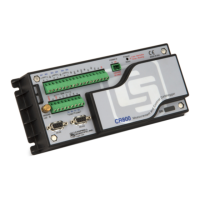Section 5. Overview
5.1.1.4.5 Ethernet Port
Read More See the section TCP/IP — Details (p. 428).
• Ethernet capability requires a peripheral Ethernet interface device, as
listed in Network Links — List
(p. 570).
5.1.1.5 Grounding — Overview
Related Topics:
• Grounding — Overview (p. 64)
• Grounding — Details (p. 96)
Proper grounding lends stability and protection to a data acquisition system. It is
the easiest and least expensive insurance against data loss — and often the most
neglected. The following terminals are provided for connection of sensor and
CR800 datalogger grounds:
• Signal ground reference for single-ended analog inputs, pulse
inputs, excitation returns, and as a ground for sensor shield wires. Signal
returns for pulse inputs should use terminals located next to the pulse
input terminal. Current loop sensors, however, should be grounded to
power ground.
• G Power ground return for 5V, SW12, 12V terminals, current loop
sensors, and C configured for control. Use of G grounds for these
outputs minimizes potentially large current flow through the analog-
voltage-measurement section of the wiring panel, which can cause
single-ended voltage measurement errors.
• Earth ground lug connection point for a heavy-gage earth-ground
wire. A good earth connection is necessary to secure the ground potential
of the CR800 and shunt transients away from electronics. Minimum 14
AWG wire is recommended.
5.2 Measurements — Overview
Related Topics:
• Sensors — Quickstart (p. 35)
• Measurements — Overview
(p. 64)
• Measurements — Details
(p. 311)
• Sensors — Lists
(p. 567)
Most electronic sensors, whether or not they are supplied by Campbell Scientific,
can be connected directly to the CR800.
Manuals that discuss alternative input routes, such as external multiplexers,
peripheral measurement devices, or a wireless sensor network, can be found at
www.campbellsci.com/manuals.

